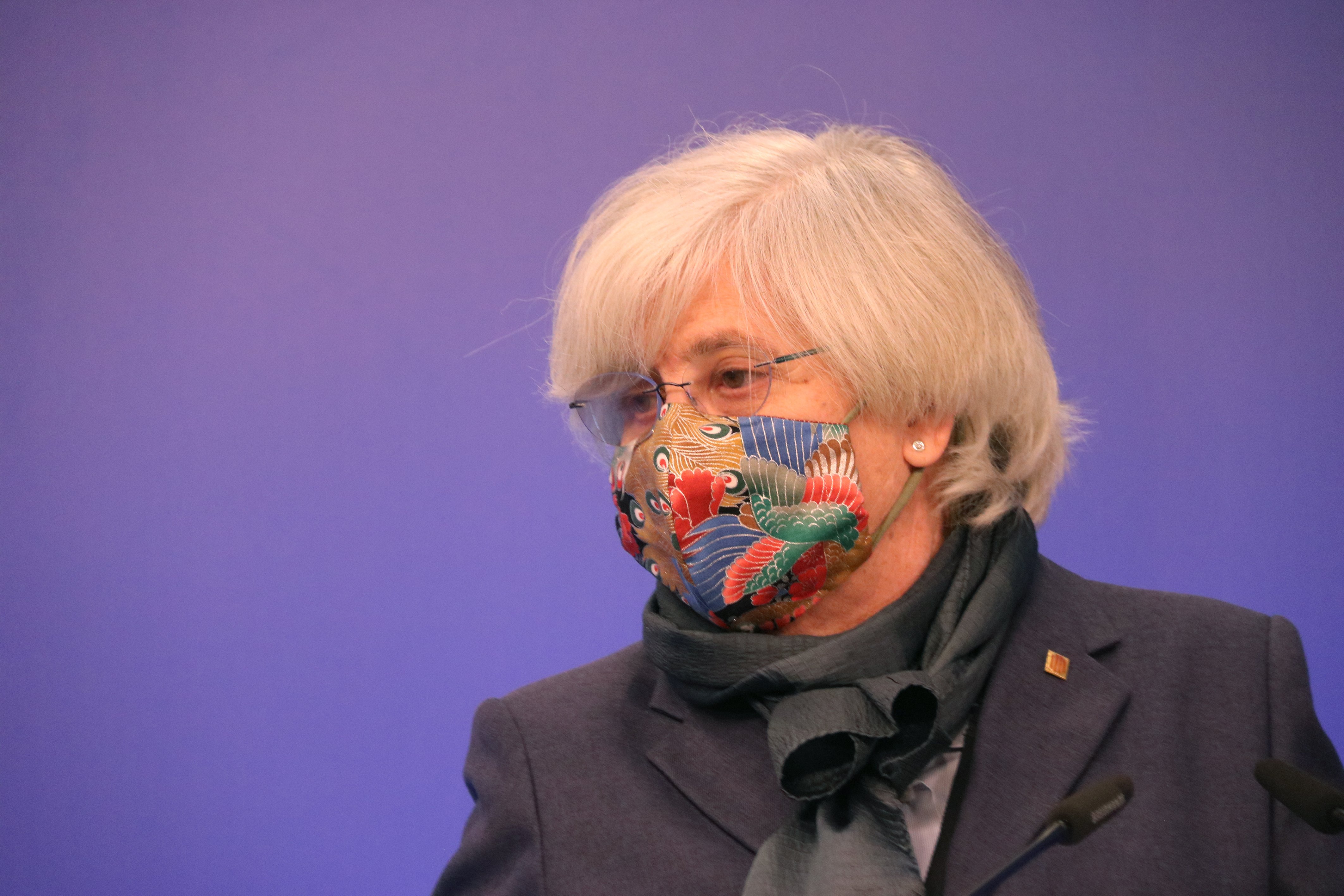The Edinburgh court decided on Thursday to definitively close the case for the extradition of former minister Clara Ponsatí, currently an MEP for Junts and resident in Belgium.
According to Ponsatí's lawyer, Aamer Anwar, the court considers that Ponsatí is no longer under its jurisdiction and that, therefore, the judicial process to extradite her to Spain must be finalised. The case in Scotland had been open for more than three years, but in November 2019 the court in Edinburgh already allowed Ponsatí to recover her passport and travel abroad.
The Scottish National Party (SNP), which governs in Scotland, has always openly rejected the position of the Spanish state in the Catalan conflict. First Minister Nicola Sturgeon has repeatedly expressed her "firm opposition" to the decision of Mariano Rajoy's government to "search for and imprison pro-independence politicians", which was later followed by Pedro Sánchez until the granting of pardons to prisoners under Spanish administration earlier this year. Sturgeon has always stressed that she respects the independence of the Scottish judiciary, which is not dependent on the English one.
This issue has also reached the Scottish press, which on several occasions has shown its support for the minister. The National newspaper has published several front-page stories on Ponsatí, denouncing her persecution.
The newspaper has stated on several occasions that "the Scots defend the Catalan teacher" and has denounced that "Spain shows the shadow of Franco". "You can't keep our Clara!", headlined The National. In this way, the Scottish press took up Ponsatí's cause and denounced the attempt to extradite her.
Ponsatí and parliamentary immunity
The Gneral Court of Justice the European Union (CJEU) rejected, on July 30th, the precautionary measures requested by Junts MEPs Carles Puigdemont, Toni Comín and Clara Ponsatí to maintain the immunity lifted from them by the European Parliament in March.

Toni Comín, Carles Puigdemont and Clara Ponsatí / EFE
They recovered it at the beginning of June, when the CJEU returned it to them as a precautionary measure, but in July it was withdrawn again because the court believed that "they had not accredited with a sufficient degree of probability" that they could be arrested. In addition, the EU first instance court based in Luxembourg ensured that Puigdemont, Comín and Ponsatí maintained parliamentary protection to assist to the plenary sessions of the European Parliament in Strasbourg.
The rejection of the precautionary measures is part of a lawsuit by the Junts MEPs against the European Parliament for the suspension of their immunity. At request of Spain’s Supreme Court, which wants to extradite them for the case of the procés, the European Parliament approved the withdrawal of their parliamentary protection in March. The three men complained to the EU judiciary alleging irregularities during the request for their extradition and also asked for their immunity to be maintained as a precautionary measure.
At the beginning of June, the CJEU did so, but on a very precautionary basis because the chamber had not yet submitted its observations and did not have enough elements to decide. A month after receiving the position by the European Parliament's legal services, the CJEU decided to waive the immunity of Puigdemont, Comín and Ponsatí while it examines the merits of the case in the coming months.

